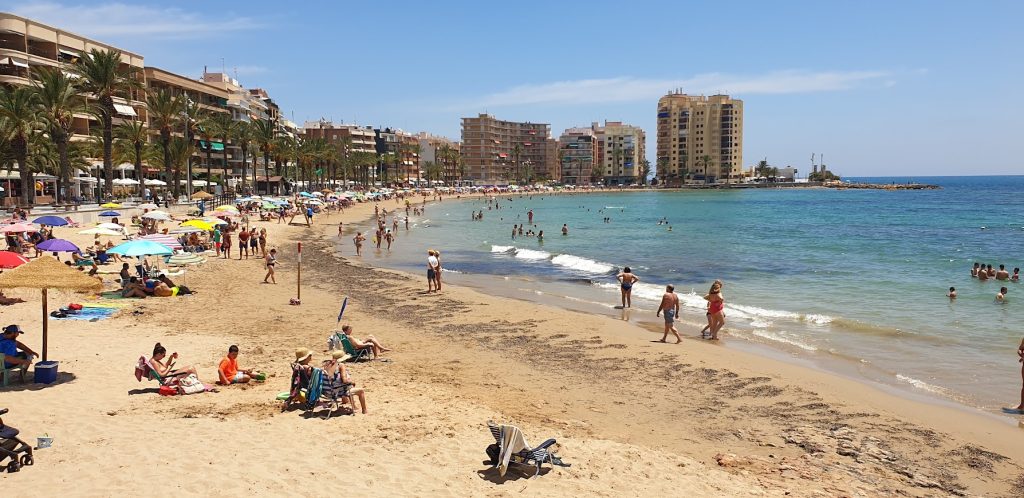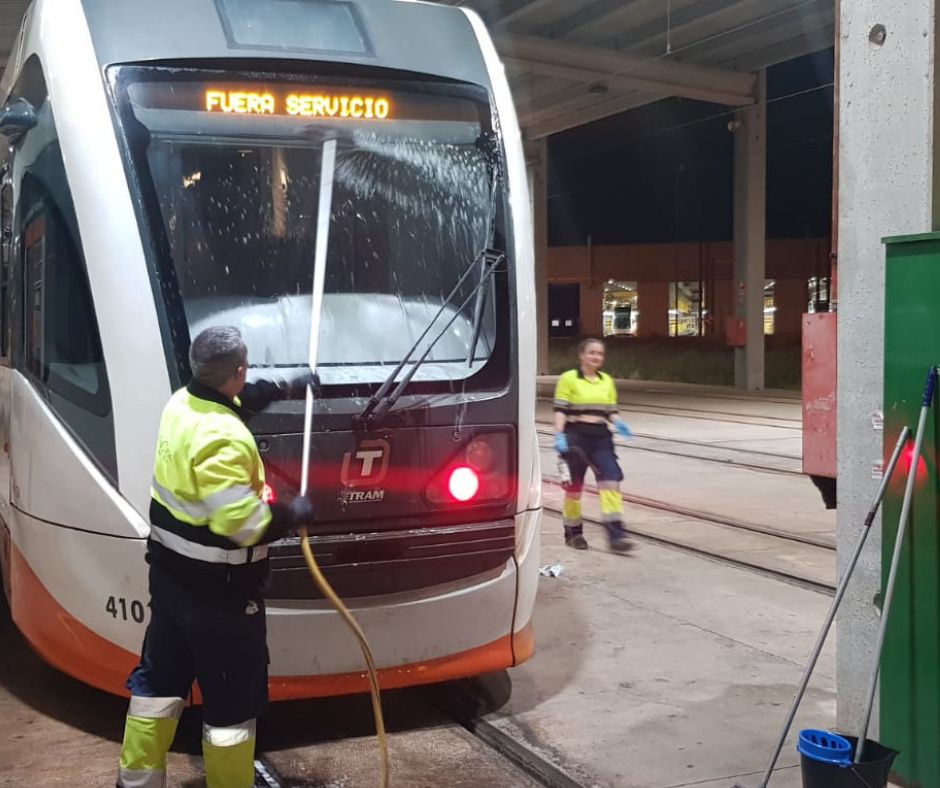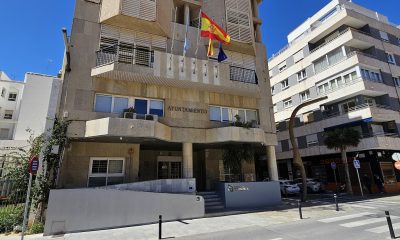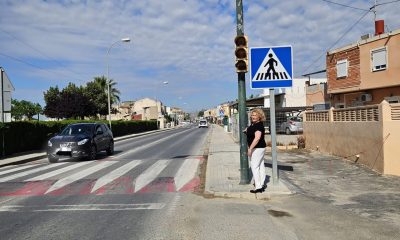Costa Blanca
The beaches of Torrevieja, without sunbeds, umbrellas or beach bars

Torrevieja’s coastline is devoid of beach bars, sun loungers, umbrellas, and recreational activities at the commencement of the peak season. Although it was already anticipated that it was practically unfeasible, the mayor of Torrevieja, Eduardo Dolón, stated at the plenary session conducted at the end of March that the beaches would most likely have beach bar service for the Easter holiday period in April. The government team failed to deliver the concession in time, and once more, a municipal announcement with deadlines was not met.
At the most recent plenary session in April, Pablo Samper, the opposition councillor for Sueña Torrevieja, criticised the mayor for his continued inaccuracy in his forecasts. He also reminded him that the beach bars typically commence operations on March 15th.
Currently in progress
The mayor was not the individual responsible for responding this time. Antonio Vidal, the councillor for Beaches, was the one who did not acknowledge the delay. Instead, he almost reprimanded Samper for recognising, as all beachgoers do, that the city council had indeed failed to arrive on time. This was due to the complex internal processing of the contract itself, as well as the fact that it requires authorisation from the State Administration through the Coastal Authority. He presupposed that the following items had already been awarded: beach bars, sunbeds, umbrellas, lifeguard stations, new restrooms, and maintenance of restrooms and stations. However, this is also incorrect.

Chiringuitos
Beach restaurants are the most sophisticated of these contracts. Several of them may be able to establish themselves on the land by the end of this month or the beginning of June. The local government council announced on Friday that the ten companies that were granted the concession have been proposed. The interested parties are required to pay a fee for the use of the public domain. However, they must now submit the documentation, and the contract will be formalised, provided that an appeal does not impede the process. The installation of the beach bars will commence at that time.
Hammocks, umbrellas, and recreational activities, including roller blades and other equipment, are additional services that have not yet been implemented. Additionally, this service is further behind schedule in its awarding and lacks a contract. During the peak season, the hammocks will be installed in eight distinct locations along La Mata shoreline, occupying a total of 1,150 square meters. Two pedal boat stations and an additional motorised boating station will be located on the shore.
Los Locos beach will feature a 200-square-metre hammock area and a pedal boat area, while Cura beach will feature two 70-square-metre hammock areas and a pedal boat area.
Lastly, Los Náufragos will provide its customary amenities, including a pedal boat rental, a hammock and umbrella area, and a floating water park.
The corporation that is interested in the concessions is required to pay a minimum of €33,000 annually for the use of the public maritime-terrestrial beach domain. The contracting committee has not yet evaluated the proposal subject to evaluation criteria (technical) or the economic criteria, despite the submission of five bids.
Lifeguard huts and new restrooms
The City Council has initiated the installation of the new beach huts and facilities, albeit at a gradual pace. The contract was awarded last year in this instance. Two new units have already been identified: one is located in the “pools” on Juan Aparicio Promenade and the other is located on Avenida de Los Europeos in La Mata. Additionally, this agreement encompasses a distinctive lifeguard tower for La Mata Beach. It is also necessary to conclude another contract, this time in its initial phase, to facilitate the repair of all of these elements and the reopening of the lavatories on the promenades, which have been closed for over a year since their installation. The total cost of this project is over €300,000.
Discover more from Costa Blanca Daily
Subscribe to get the latest posts sent to your email.
Costa Blanca
FGV will allocate 1.4 million euros to cleaning the rolling stock and workshops of the Alicante TRAM

Ferrocarrils de la Generalitat Valenciana (FGV) will allocate €1,415,203.59 to clean the rolling stock and workshops of Alicante TRAM for a period of one year from the commencement of the contract, which also includes the possibility of an additional year’s extension.
The contracted services ensure the quality and frequency of the necessary cleanings, both daily and non-daily, as well as any unforeseen incidents or problems, such as graffiti or any other form of vandalism, by considering all the requirements associated with the cleaning of TRAM d’Alacant’s rolling stock and workshops.
At present, the rolling stock of TRAM d’Alacant comprises 37 units: 22 Bombardier 4200 series trams; 9 TRAM trains from the former Vossloh España company, which is now Stadler Rail Valencia; and 6 dual-drive (electro-diesel) trains from Stadler Rail Valencia, which are manufactured in Albuixech. These trains were retired after the modernisation work on Line 9 between Benidorm and Dénia was completed.
The 37 units for maintenance are housed in the three facilities that are currently available: El Campello, Benidorm, and Dénia.
Discover more from Costa Blanca Daily
Subscribe to get the latest posts sent to your email.
Costa Blanca
Police in Alicante train officers to patrol on motorcycles with greater safety and efficiency

This week, nearly twenty agents from Alicante, Elche, Benidorm, Castellón, and Valencia have participated in a National Police course on motorcyclist safety specialisation.
The objective of the course developed in Alicante by the national police’s road training unit is to “ensure that all colleagues are safer and provide a more efficient service to the “citizenship,” according to officer Jose Manuel Paniagua, one of the four instructors from Madrid, Valencia, and Castellón who have taught the course.
The instructors have been instructing fifteen unit agents of prevention and reaction (UPR) on how to patrol more safely on their large-displacement motorcycles, which weigh between 160 and 200 kilogrammes each.
Paniagua has emphasised the importance of technical mastery of the vehicle in various scenarios, as well as visual planning and anticipation.
In order to achieve this, they have been conducting closed-circuit exercises on a track and on provincial roads with curved sections. Some of the exercises that are practiced in the course include emergency braking, changing direction and curve paths, getting on and off moving motorcycles and stops, and conducting low-level escorts while maintaining balance without putting your feet on the ground.
The instructor asserts that the course enables the participants to “improve the defects or vices they have when driving,” despite the fact that the majority of them are seasoned agents who provide service to the Alicante Motorcycle Groups and other cities in the province.

The course is derived from the English Driving Style, which has been embraced by numerous security forces and organisations worldwide. “It is a model that prioritises anticipation, security, and vehicle control, without compromising efficiency or reaction capacity,” explains Paniagua.
Instructors prioritise three fundamental aspects in their interactions with the agents: the agents’ feet and their position while driving, the use of brakes, and the gaze. The gaze is considered crucial for safety, as it provides the driver with anticipation.
Motorcycles enable the National Police to respond more promptly to emergencies; however, they also pose a greater risk to police officers. The objective of the course is to guarantee the safety of officers while they are serving and travelling. Consequently, the instructors emphasised to the police that they are unable to assist anyone if they do not arrive at the correct location.
The officer also concludes that the agents have been trained in the fundamental skills of stress management, decision-making under pressure, and reading the environment, which are necessary to intervene in actual scenarios without compromising the safety of oneself or others.
Discover more from Costa Blanca Daily
Subscribe to get the latest posts sent to your email.
Costa Blanca
Alcampo to close 25 stores in Spain with the loss of 710 jobs across 13 regions

Auchan, a French retail chain that operates in Spain under the Alcampo brand, has announced its intention to close 25 stores throughout the country, which will result in the loss of 710 jobs.
According to reports, the decision is the consequence of evolving consumer preferences, which have led to an increasing preference for online purchases and smaller stores over traditional large-scale supermarkets.
The company is concentrating its strategy on the expansion of smaller store formats and the reinforcement of its digital retail channels in order to adjust to these changes.
The restrictions are scheduled to occur in 13 regions of Spain, including Madrid, Valencia, Galicia, Navarra, La Rioja, and Asturias.
Approximately 23,300 individuals are presently employed by Auchan in Spain. On May 8, labour unions were informed of the restructuring plan’s specifics during a meeting.
The organisation declared, “It is imperative to achieve sustainable growth and recover results in each and every shop during this transformation process.” This is the reason why Alcampo is implementing a staff modification plan, a decision that is both responsible and essential, despite its difficulty.
Auchan has not yet publicly identified the specific stores that are scheduled for closure, despite the fact that the CCOO trade union in Spain has reported obtaining a list of affected outlets, which includes several of its hypermarkets.
CCOO commented on the circumstance, stating, “This is the entirety of the information that the company has furnished us with.” The subsequent phase of this procedure, which was initiated by Alcampo management, is the establishment of a collective dismissal negotiating committee.
Auchan is required to submit all pertinent documentation during the initial meeting in order for union representatives to evaluate and commence negotiations, according to the union.
The union concluded, “At CCOO, we will confront this challenging situation, which is novel to the company, with the explicit understanding that the primary goal is to preserve employment and, in the event that employees depart, to guarantee that they do so in the most favourable manner possible.”
In late 2018, Auchan made the decision to eliminate over 2,000 positions in France as part of a broader restructuring initiative designed to stimulate development. This announcement is a continuation of that decision.
Discover more from Costa Blanca Daily
Subscribe to get the latest posts sent to your email.
-

 Costa Blanca2 weeks ago
Costa Blanca2 weeks agoFire Consortium carried out 65 rescues and transported people to hospitals in the province of Alicante
-

 Costa Blanca2 weeks ago
Costa Blanca2 weeks agoA municipal vehicle was engulfed in a terrifying fire in the heart of Calpe
-

 Costa Blanca2 weeks ago
Costa Blanca2 weeks agoResidents of El Mojón in Pilar de la Horadada will receive mail at their homes
-

 Costa Blanca2 weeks ago
Costa Blanca2 weeks agoGreen light for drafting of park-and-ride parking project in Torrevieja
-

 Costa Blanca2 weeks ago
Costa Blanca2 weeks ago27 members of the Mara Salvatrucha gang arrested in Madrid, Barcelona, Tarragona, and Guardamar
-

 Costa Blanca2 weeks ago
Costa Blanca2 weeks agoAena closed the first quarter of 2025 with a profit of 301.3 million euros
-

 Costa Blanca2 weeks ago
Costa Blanca2 weeks agoNational Police arrest two women in Benidorm for stealing from tourists
-

 Costa Blanca2 weeks ago
Costa Blanca2 weeks agoElche prohibits the sale and consumption of sunflower seeds to protect the Martínez Valero stadium














